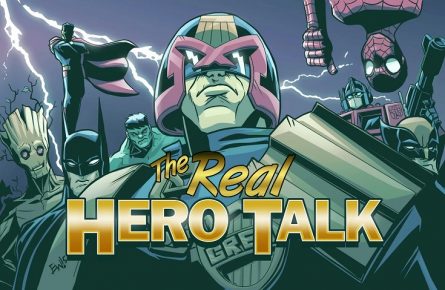
You should never underestimate the capacity for people to disappoint you.
This is probably a general truth, but with regard to the games industry, I am routinely surprised at just how immature it is. I don’t just mean juvenile, although that applies too, but if we are honest with ourselves this is still a young medium, and that state of being resonates through the entire industry.
Business
Now, in a world with huge outfits like EA, Nintendo, even Microsoft in the games arena, it might seem strange to call the business aspect immature. Certainly there are some organizations that are much better off, and some that are much worse, but it is really amazing how much self-delusion goes on. You might think that because these are people who work in the business, and see know that the average consumer does not have access to, they should have a bit of a different mindset from that average consumer. The average consumer may or may not be justified in what they think about things (that’s a different topic), but the fact is that you will often hear the same things from people in the industry as the consumers, be they justified, uninformed, knee jerk, prejudiced, or anything else, even though being able to see things from the other side the professionals should be able to respond with some greater insight.
Industry professionals will engage in, effectively verbatim, the exact same arguments about DLC, micro transactions, free to play, mobile, pc vs console, as anyone else. Yet, being on the other side of things, can’t they provide any greater insight? Are they so swept up in their own fandom and passions for the medium that they can’t separate themselves enough to look at things from their new perspective? They are producers of content, developers of the medium, and it needs better than “fan boy” arguments to shape and develop it.
Here is an example of some lines of thought:
- Female players
- Casual games are for female players
- Match 3, or puzzle games in general are casual games
- Female players like cute art with pastels
- Male players
- Core games are for male players
- FPS games are core games
- Male players like action and a sense of empowerment
This is just a brief set of assertions, and this can be expanded, but this will do for demonstration purposes. None of these statements are universally false, but they are not universally true either. There are women who play Call of Duty, and men who play Candy Crush. I’m not going to speak to HOW true each of those assertions is, but just considering the possibility that they are not all 100% true, you can see that if all of the industry follows these assumptions there WILL be an under served market.
Now, you might be inclined to say that this is a good opportunity for more innovated or far sighted developers to serve that market, and you’d be right, but there’s more to it than that. The fact is that there’s a booming sound inside the industry and the fandom that tries to re-enforce those initial assertions.
Gender Politics
I’ve said before, and will continue to say, that games fail A LOT, and anyone interested in maintaining employment for themselves, or those under them, will probably gravitate to the surest money that they can. The surest money is to follow the paths that have already been established. The established path is the existing assertions like those made above. Trying to move on to the under-served market is a risk, and risks can easily lead to people losing their livelihoods. So, the default is to follow those assertions.
If that is the default position, then all of the development, marketing, thinking, and even more weighty than everything else put together – cultural awareness, goes toward re-enforcing those assertions. Cultural awareness is global, not just within the industry. It affects how everyone else looks at the medium as a whole. It is the industry itself shouting out “THIS IS WHAT WE’RE MAKING, AND HOW WE EXPECT YOU TO CONSUME IT!”
Essentially, it is creating the video game equivalent of the pink aisle.

Seriously, this is demeaning, and we need to call this kind of crap out.
This is becoming a generational issue as well. Kids brought up with those assertions are entering the industry and could hold on to those assertions even more strongly for having been brought up on them.
This goes beyond the idea that female game players need simple, cutesy, casual games. It is also saying that to appeal to male players, you just need to amp up the action, empowerment, and sex. That’s a different issue, but it’s also insulting. It’s entirely possible for someone to say that “this is ok, but to really appeal to the players, we need to sex it up, add some cleavage, make her bustier…” and so forth. While I haven’t heard it, I have seen the effect in development, and it’s really depressing. This is a creative industry, and we need to have more creative solution for keeping attention than T&A.

How do we get everyone to play our city builder game? Well, we can get teenage boys to play by making it look like a sex game. That’s everyone, right?
Is it any wonder that some male players, overfed on power fantasies, overreact when people claim that certain trends in the industry are overused? No responsible pundits speak about abolishing the games that come from these assertions. The call is for better balance. There is a place for cute casual games, and there’s a place for sex in games. But working from the assertion that one is only for females, the other only for males leads to all of the design and marketing continually re-enforcing it.
It is a self-fulfilling prophecy:
- Only male players play this type of game
- We need to appeal to male players
- Male players want more power fantasy and sex
- The next game needs to try to up the ante to appeal to those same players.
This continues to build on itself, and this is how the industry, as a whole, is presenting itself. It is saying that female players need this simplified experience, and male players are the premium buyers, and should be catered to with intelligence-insulting power fantasies. It says that if you want to play in a different way that you aren’t welcome.
-Isms
This all breeds a Gordian knot of sexism, and even presumed privilege from the consumers, but it can seep back into the industry in other ways. Aside from the fact that it often makes the industry look like a boys only club, there are plenty of examples of behavior in the industry that is simply unacceptable.

To the left, a poster that was displayed in a dev office. To the right, a poster a female worker posted to point out how uncomfortable the first one makes the work place.
In nearly any office, it would not be appropriate to put up a poster like that shown above. In the games industry, it could be considered a risk to point out that kind of BS. Fortunately the example above did not fall on deaf ears and a lesson was successfully learned.
But the –isms don’t end there. Games are a young person’s hobby, right? Games run on a lot of crunch time, right? It’s a lot of hard work, and long hours, and everyone’s gotta keep up, right? Who can be relied on all of this? Young people, right? This is a young person’s game, and so young people can be relied on to get through it, have insights to what other young people want, too, right?
Sure, lets just never mind that when you have that many young people, they haven’t developed their professionalism, don’t have experience, or a track record, and have a tendency to go about things in a less efficient way because they just aren’t seasoned yet. But the industry has a depressing tendency to say “no, you’re too old, we don’t want you.”
Ageism is another real problem in the industry. Pioneers with exemplary track records can be left on the roadside because people think they can’t keep up. Let’s just nevermind the fact that they have probably gone through and have solutions for a lot of what is snagging your production. Let’s nevermind the fact that they have shown that they have the kind of long lasting passion for the medium that proves that you can’t burn them out. Nevermind the fact that they have been around for so long you should be able to know that they are professional enough to not cause any HR problems. Nevermind the fact that they probably are the most qualified applicant you have. Nope, they’re too old, they can’t do the crunch time (that their presence might be able to significantly reduce) so they don’t have a place here.

Nevermind that none of us are over 30, or have any experience, we’re gonna work HARD! That’ll get us through anything, right?
Work harder, not smarter
This comes to the leadership at the developer, and the idea of crunch time. I firmly believe that, unless something truly exceptional happened, extended crunch time is a sign of poor management. You’re at a point where having a larger team would be cheaper and more productive. It all comes down to wanting people who will work hard, but there’s little emphasis on working smart. Some of this might be because it’s a lot easier to quantify when someone works hard. Some QA vets will brag about their longest week, 100 hours, 120 hours, etc. What you can’t often quantify is how smart someone works. Preventing extra effort isn’t visible, and can’t be measured so easily.
Yes, having an older person on the team might mean they can’t put in the same late hours. Killing yourself with OT is a younger person’s wheelhouse. But the older person can most likely get the same work done in normal time. Or, possibly, do work slower the first time, but needing fewer revisions, and thus still actually be completed sooner even without the OT. I actually like seeing older people when I’m interviewing for a new spot. It’s far more likely that they have enough life experience to not screw around. The are mature enough to know that their job is important, not just for the company, but for themselves personally.
This is even more pronounced in a leadership position. I want my boss to have a better grasp of what’s going in the big picture than I do. This is because I need to focus on what my department and I are doing, and my boss needs to focus on what everyone is doing. For them to have a good grasp of the big picture, it helps for them to have been there before.
Scope
With all of that said, let’s end on something a little more positive. Video games themselves are still an immature medium. Video games started as an interesting new toy. It was new way for friends to compete at a bar, or while waiting at a movie or something. It was a shiny trinket for children to let them play, or to distract them if that was the caretakers’ approach. Since then we have expanded our idea of what a video game is to encompass interactive storytelling.
Even in the 80’s it was no longer only about getting the high score, but to complete the game and consume the entire story. As time goes on, there was more experimentation with using an interactive medium to tell a story, and to invoke feelings in the audience.
We are only just now really beginning to explore what can be done with these experiences. Some are pushing the idea of “game”. The Stanley Parable doesn’t really have any game to it, unless you consider taking the different paths game play, or puzzle solving. However, it is a fascinating interactive experience. I think as time goes on, while the term “Video Game” will be kept due to how ubiquitous it is, the “game” part may mean less and less. Similar to how to “tape” a video is a term that is still used, but magnetic videotape is almost never used anymore. I think that video games as games will never go away. They are too fun, competitive, engrossing, and captivating. People like to make games out of everything. But that’s not the limit of what they can do.
For example, Video Games are routinely compared to movies. Starting from that, to roughly quote director Nicholas Meyer: movies are unique in their terrible ability to do all of the work for the audience. By that he meant that all of the possible information is given to the audience, and they don’t have to work to picture anything in their heads, or use their imaginations. Narrative driven video games are indeed similar to movies, but they put the player in the position of having to make choices and affect the story. It can be a vehicle for greater awareness and understanding of a different point of view. It can be a vehicle for a new emotional experience. Papers Please can make you corrupt, and understand why people could become that. Coming Out Simulator 2014 can help someone understand other people who have a fundamentally different world-view. The Walking Dead: Season 1 is a game that didn’t have a lot of traditional “game play”, but still was gut wrenching when you have your choices come back up later.

Emotionally charged, calling back to all your pivotal choices, you’re taken to task on all of them. A wonderful moment to give weight to a game that’s functionally little more than a visual novel with a couple riddles.
I believe that this potential is only just now being tapped, and I am excited to see what new experiences it can give us.
Kynetyk is a veteran of the games industry. Behind the Line is written to help improve understanding of what goes on in the game development process and the business behind it. From “What’s taking this games so long to release”, to “why are there bugs”, to “Why is this free to play” or anything else, if there is a topic that you would like to see covered, please write in to kynetyk@enthusiacs.com








Behind the Line: The Immaturity of the Video Game Industry
You should never underestimate the capacity for people to disappoint you.
This is probably a general truth, but with regard to the games industry, I am routinely surprised at just how immature it is. I don’t just mean juvenile, although that applies too, but if we are honest with ourselves this is still a young medium, and that state of being resonates through the entire industry.
Business
Now, in a world with huge outfits like EA, Nintendo, even Microsoft in the games arena, it might seem strange to call the business aspect immature. Certainly there are some organizations that are much better off, and some that are much worse, but it is really amazing how much self-delusion goes on. You might think that because these are people who work in the business, and see know that the average consumer does not have access to, they should have a bit of a different mindset from that average consumer. The average consumer may or may not be justified in what they think about things (that’s a different topic), but the fact is that you will often hear the same things from people in the industry as the consumers, be they justified, uninformed, knee jerk, prejudiced, or anything else, even though being able to see things from the other side the professionals should be able to respond with some greater insight.
Industry professionals will engage in, effectively verbatim, the exact same arguments about DLC, micro transactions, free to play, mobile, pc vs console, as anyone else. Yet, being on the other side of things, can’t they provide any greater insight? Are they so swept up in their own fandom and passions for the medium that they can’t separate themselves enough to look at things from their new perspective? They are producers of content, developers of the medium, and it needs better than “fan boy” arguments to shape and develop it.
Here is an example of some lines of thought:
This is just a brief set of assertions, and this can be expanded, but this will do for demonstration purposes. None of these statements are universally false, but they are not universally true either. There are women who play Call of Duty, and men who play Candy Crush. I’m not going to speak to HOW true each of those assertions is, but just considering the possibility that they are not all 100% true, you can see that if all of the industry follows these assumptions there WILL be an under served market.
Now, you might be inclined to say that this is a good opportunity for more innovated or far sighted developers to serve that market, and you’d be right, but there’s more to it than that. The fact is that there’s a booming sound inside the industry and the fandom that tries to re-enforce those initial assertions.
Gender Politics
I’ve said before, and will continue to say, that games fail A LOT, and anyone interested in maintaining employment for themselves, or those under them, will probably gravitate to the surest money that they can. The surest money is to follow the paths that have already been established. The established path is the existing assertions like those made above. Trying to move on to the under-served market is a risk, and risks can easily lead to people losing their livelihoods. So, the default is to follow those assertions.
If that is the default position, then all of the development, marketing, thinking, and even more weighty than everything else put together – cultural awareness, goes toward re-enforcing those assertions. Cultural awareness is global, not just within the industry. It affects how everyone else looks at the medium as a whole. It is the industry itself shouting out “THIS IS WHAT WE’RE MAKING, AND HOW WE EXPECT YOU TO CONSUME IT!”
Essentially, it is creating the video game equivalent of the pink aisle.
Seriously, this is demeaning, and we need to call this kind of crap out.
This is becoming a generational issue as well. Kids brought up with those assertions are entering the industry and could hold on to those assertions even more strongly for having been brought up on them.
This goes beyond the idea that female game players need simple, cutesy, casual games. It is also saying that to appeal to male players, you just need to amp up the action, empowerment, and sex. That’s a different issue, but it’s also insulting. It’s entirely possible for someone to say that “this is ok, but to really appeal to the players, we need to sex it up, add some cleavage, make her bustier…” and so forth. While I haven’t heard it, I have seen the effect in development, and it’s really depressing. This is a creative industry, and we need to have more creative solution for keeping attention than T&A.
How do we get everyone to play our city builder game? Well, we can get teenage boys to play by making it look like a sex game. That’s everyone, right?
Is it any wonder that some male players, overfed on power fantasies, overreact when people claim that certain trends in the industry are overused? No responsible pundits speak about abolishing the games that come from these assertions. The call is for better balance. There is a place for cute casual games, and there’s a place for sex in games. But working from the assertion that one is only for females, the other only for males leads to all of the design and marketing continually re-enforcing it.
It is a self-fulfilling prophecy:
This continues to build on itself, and this is how the industry, as a whole, is presenting itself. It is saying that female players need this simplified experience, and male players are the premium buyers, and should be catered to with intelligence-insulting power fantasies. It says that if you want to play in a different way that you aren’t welcome.
-Isms
This all breeds a Gordian knot of sexism, and even presumed privilege from the consumers, but it can seep back into the industry in other ways. Aside from the fact that it often makes the industry look like a boys only club, there are plenty of examples of behavior in the industry that is simply unacceptable.
To the left, a poster that was displayed in a dev office. To the right, a poster a female worker posted to point out how uncomfortable the first one makes the work place.
In nearly any office, it would not be appropriate to put up a poster like that shown above. In the games industry, it could be considered a risk to point out that kind of BS. Fortunately the example above did not fall on deaf ears and a lesson was successfully learned.
But the –isms don’t end there. Games are a young person’s hobby, right? Games run on a lot of crunch time, right? It’s a lot of hard work, and long hours, and everyone’s gotta keep up, right? Who can be relied on all of this? Young people, right? This is a young person’s game, and so young people can be relied on to get through it, have insights to what other young people want, too, right?
Sure, lets just never mind that when you have that many young people, they haven’t developed their professionalism, don’t have experience, or a track record, and have a tendency to go about things in a less efficient way because they just aren’t seasoned yet. But the industry has a depressing tendency to say “no, you’re too old, we don’t want you.”
Ageism is another real problem in the industry. Pioneers with exemplary track records can be left on the roadside because people think they can’t keep up. Let’s just nevermind the fact that they have probably gone through and have solutions for a lot of what is snagging your production. Let’s nevermind the fact that they have shown that they have the kind of long lasting passion for the medium that proves that you can’t burn them out. Nevermind the fact that they have been around for so long you should be able to know that they are professional enough to not cause any HR problems. Nevermind the fact that they probably are the most qualified applicant you have. Nope, they’re too old, they can’t do the crunch time (that their presence might be able to significantly reduce) so they don’t have a place here.
Nevermind that none of us are over 30, or have any experience, we’re gonna work HARD! That’ll get us through anything, right?
Work harder, not smarter
This comes to the leadership at the developer, and the idea of crunch time. I firmly believe that, unless something truly exceptional happened, extended crunch time is a sign of poor management. You’re at a point where having a larger team would be cheaper and more productive. It all comes down to wanting people who will work hard, but there’s little emphasis on working smart. Some of this might be because it’s a lot easier to quantify when someone works hard. Some QA vets will brag about their longest week, 100 hours, 120 hours, etc. What you can’t often quantify is how smart someone works. Preventing extra effort isn’t visible, and can’t be measured so easily.
Yes, having an older person on the team might mean they can’t put in the same late hours. Killing yourself with OT is a younger person’s wheelhouse. But the older person can most likely get the same work done in normal time. Or, possibly, do work slower the first time, but needing fewer revisions, and thus still actually be completed sooner even without the OT. I actually like seeing older people when I’m interviewing for a new spot. It’s far more likely that they have enough life experience to not screw around. The are mature enough to know that their job is important, not just for the company, but for themselves personally.
This is even more pronounced in a leadership position. I want my boss to have a better grasp of what’s going in the big picture than I do. This is because I need to focus on what my department and I are doing, and my boss needs to focus on what everyone is doing. For them to have a good grasp of the big picture, it helps for them to have been there before.
Scope
With all of that said, let’s end on something a little more positive. Video games themselves are still an immature medium. Video games started as an interesting new toy. It was new way for friends to compete at a bar, or while waiting at a movie or something. It was a shiny trinket for children to let them play, or to distract them if that was the caretakers’ approach. Since then we have expanded our idea of what a video game is to encompass interactive storytelling.
Even in the 80’s it was no longer only about getting the high score, but to complete the game and consume the entire story. As time goes on, there was more experimentation with using an interactive medium to tell a story, and to invoke feelings in the audience.
We are only just now really beginning to explore what can be done with these experiences. Some are pushing the idea of “game”. The Stanley Parable doesn’t really have any game to it, unless you consider taking the different paths game play, or puzzle solving. However, it is a fascinating interactive experience. I think as time goes on, while the term “Video Game” will be kept due to how ubiquitous it is, the “game” part may mean less and less. Similar to how to “tape” a video is a term that is still used, but magnetic videotape is almost never used anymore. I think that video games as games will never go away. They are too fun, competitive, engrossing, and captivating. People like to make games out of everything. But that’s not the limit of what they can do.
For example, Video Games are routinely compared to movies. Starting from that, to roughly quote director Nicholas Meyer: movies are unique in their terrible ability to do all of the work for the audience. By that he meant that all of the possible information is given to the audience, and they don’t have to work to picture anything in their heads, or use their imaginations. Narrative driven video games are indeed similar to movies, but they put the player in the position of having to make choices and affect the story. It can be a vehicle for greater awareness and understanding of a different point of view. It can be a vehicle for a new emotional experience. Papers Please can make you corrupt, and understand why people could become that. Coming Out Simulator 2014 can help someone understand other people who have a fundamentally different world-view. The Walking Dead: Season 1 is a game that didn’t have a lot of traditional “game play”, but still was gut wrenching when you have your choices come back up later.
Emotionally charged, calling back to all your pivotal choices, you’re taken to task on all of them. A wonderful moment to give weight to a game that’s functionally little more than a visual novel with a couple riddles.
I believe that this potential is only just now being tapped, and I am excited to see what new experiences it can give us.
Kynetyk is a veteran of the games industry. Behind the Line is written to help improve understanding of what goes on in the game development process and the business behind it. From “What’s taking this games so long to release”, to “why are there bugs”, to “Why is this free to play” or anything else, if there is a topic that you would like to see covered, please write in to kynetyk@enthusiacs.com